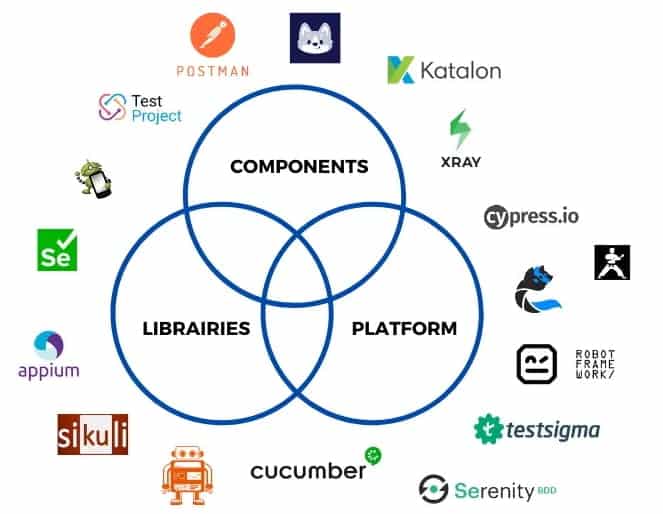Table of Contents

What does a QA engineer do?
You may be asking yourself, why do we require QA engineers? Don’t programmers check their code for mistakes? Development teams do conduct unit, integration and code tests. Such types must be tested at an early stage to allow for development and prevent new elements from interfering with existing ones. It doesn’t, however, focus on user-centered testing.check mark icon
- While developers can conduct UI testing to some extent, is it not more beneficial for developers to invest their time in actual development, fixes, and enhancements?
- As experience has shown, developers typically only find a few bugs. It isn’t a reflection of their skills but rather the challenge of spotting errors in their work. It is where QA engineers come in. They help to make sure that even the tiniest bug gets found.
Classification of testing types
Defining testing types can be grouped into six main types, each of which provides a different perspective on the complex nature of software testing:- By Application Under Test (AUT):
Tests according to the application type (web, mobile, desktop), platform and environment. - By Application Layer:
Groups tests by software architecture (UI, backend, APIs), focusing on structural tests to perform comprehensive functional testing. - By Attribute:
Classifies tests by application attributes (visual, functional, performance, security, usability), using specialized quality management techniques. - By Approach:
Defines the methods (manual, automated, AI) used for testing, defining the decision of method in terms of efficiency and accuracy. - By Granularity:
Organises tests by the level of detail (from unit testing to end-to-end testing), giving you a micro view from individual pieces to the entire system. - By Testing Techniques:
Deals with specific test methods (black-box, white-box, gray-box testing), helps select the appropriate testing method based on purpose and complexity of the system.
Table of Contents
Talk to Our Expert
Our journey starts with a 30-min discovery call to explore your project challenges, technical needs and team diversity.

Yaroslav Kuntsevych
co-CEO


